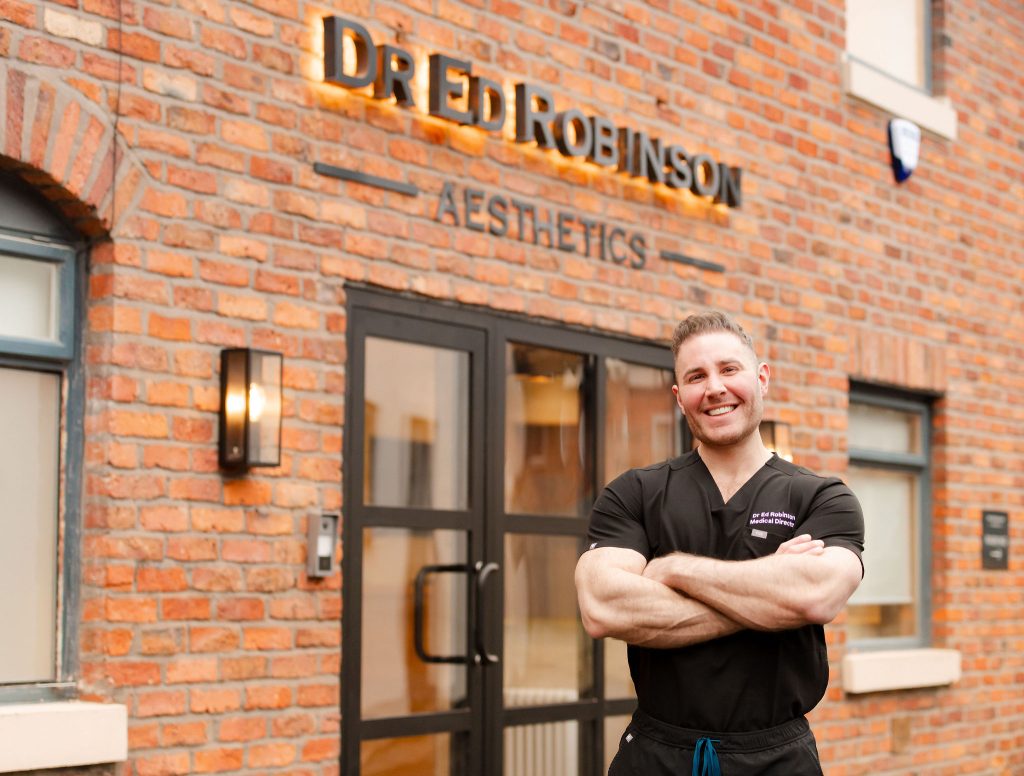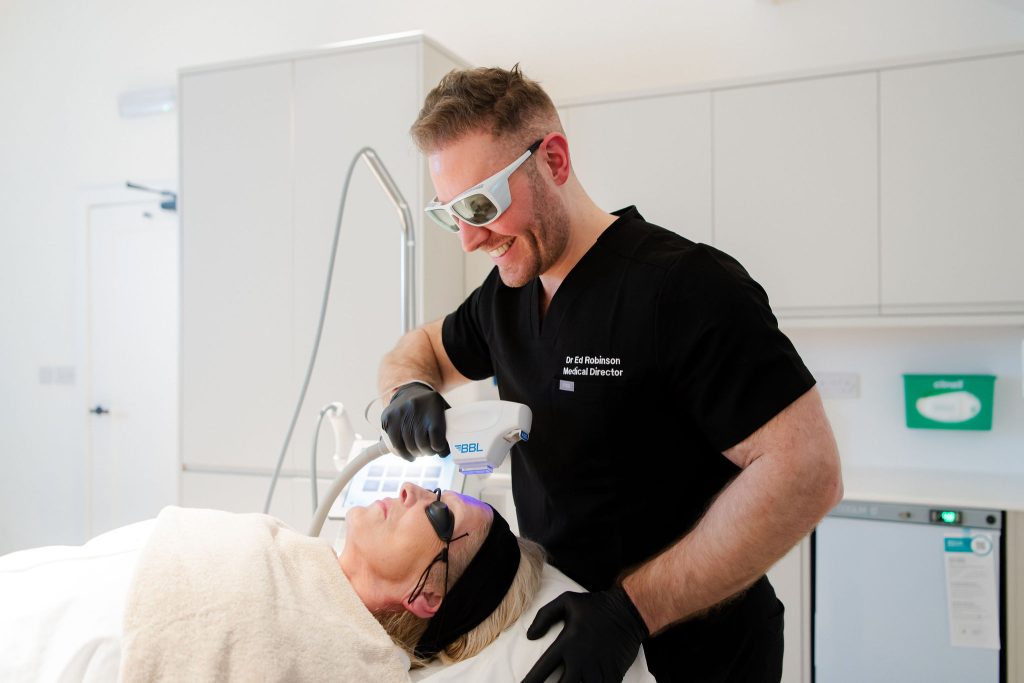Leading medical professional Dr Ed Robinson is calling on the UK Government to urgently strengthen regulation and enforcement to protect the public from the growing dangers of black market aesthetic treatments.
This follows two deeply concerning public health warnings issued in the same week:
- A botulism alert linked to the use of counterfeit “Botox” sourced from the black market and administered by a non-medical practitioner.
- A blood-borne virus risk after a client received a so-called “vampire facial” from a non-healthcare professional in unsanitary conditions.
Both incidents highlight the serious health risks posed by unqualified individuals operating without regulation, often using illegally obtained and unverified products.
Dr Ed Robinson, a medical aesthetics doctor and anaesthetic doctor based in Hale and London, Harley Street commented:
“This is not just a regulatory issue, it’s a public safety crisis. People are being harmed by individuals with no medical training, injecting black market products with no quality control. We urgently need clear, enforceable regulation that makes it illegal for non-healthcare professionals to purchase or administer prescription-only treatments like botulinum toxin without seeing a prescriber.
Despite repeated calls from within the industry, the UK still lacks meaningful, statutory regulation that restricts the use of prescription-only aesthetic injectables, such as botulinum toxin, to medically qualified professionals.
Dr Robinson continues:
“No other area of medicine allows this level of risk and lack of oversight. Without change, the consequences, from disfigurement to life-threatening complications, will only escalate, which we saw last year following a liquid ‘Brazilian butt lift”
“It is true that the Nursing and Midwifery Council recently banned remote prescribing for nurses. While this is a step in the right direction, making it significantly harder for non-medical practitioners to access legitimate Botox, who now require a face to face consultation with their patients and a prescriber, it is likely to drive more practitioners to acquire black market Botox with no quality control process to circumvent the new rules.”
The aesthetics sector continues to grow rapidly, but without urgent legislative action, vulnerable individuals will remain exposed to unsafe and unregulated treatments offered by untrained providers.
The medical aesthetics community is urging the Government to:
- Clamp down and ban the sale of botulinum toxin and other prescription injectables to non-healthcare professionals through unregulated sources with no prescriber input.
- Introduce a compulsory licensing scheme for all aesthetic clinics and practitioners.
- Launch a public awareness campaign to help people understand the risks of seeking treatments from unregulated providers.
“It’s time to stop treating aesthetics as a beauty service,” adds Dr Robinson. “These are medical procedures. People’s health is at stake.”




